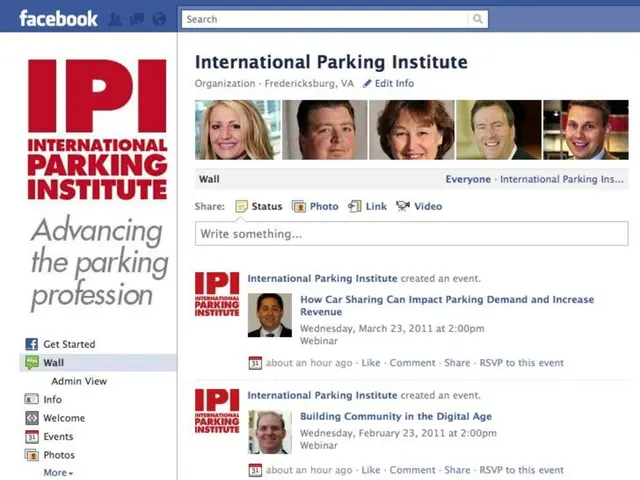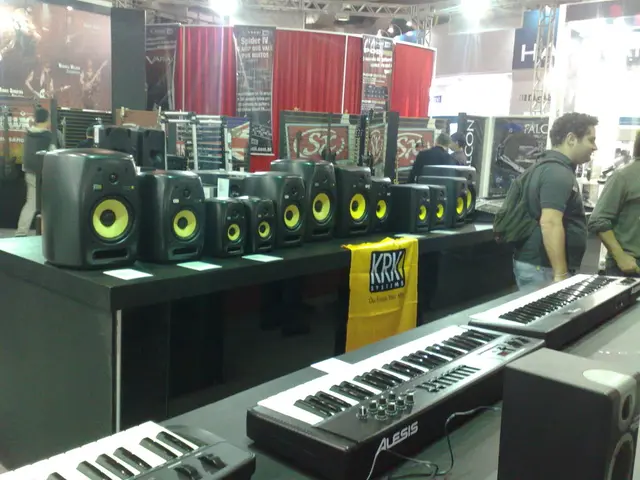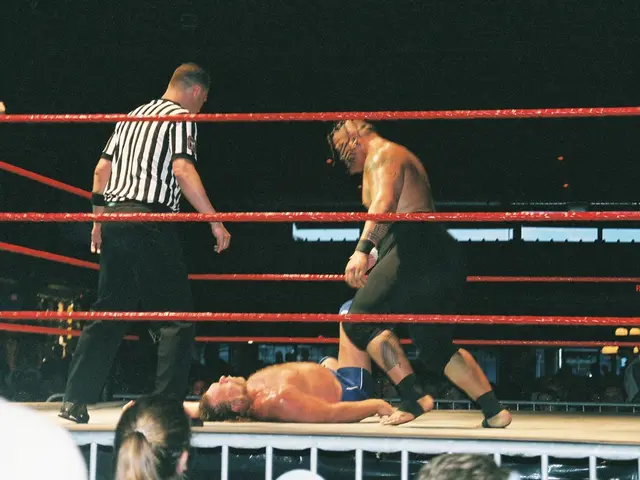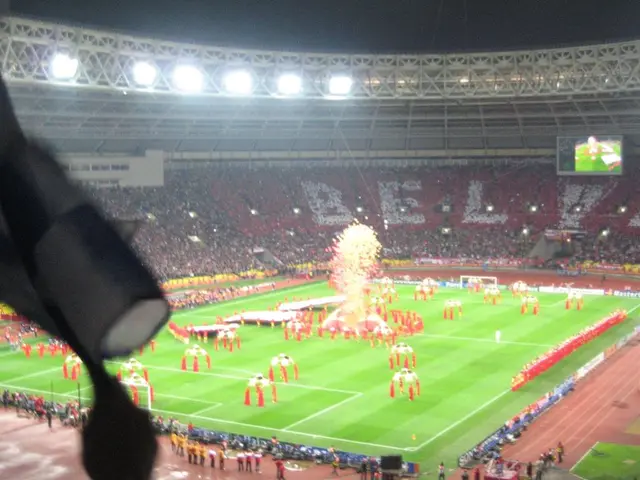Discussion with Frank Floor: Has there been an enhancement in the level of respect shown to vendors?
Two years ago, we published a story highlighting vendors' feelings of disrespect from operators in the gaming industry. That article received a flood of feedback - second only to discussions about slot machines being too tight. It seemed like it was time for an update on this topic. We reached out to knowledgeable and experienced sales reps to see if anything had changed.
Here are some candid quotes straight from the horse's mouth. Typically, we avoid anonymous comments because they lack credibility, but unfortunately, any vendor who openly criticizes a casino operator risks being shunned or blackballed by the entire industry.
It's important to remember that making the best possible deal should always be a priority. Underhanded tactics such as failing to honor contracts or demanding more for less may produce savings, but they're no excuse for illegal, rude, or unethical behavior. In the long run, these actions may cost your organization more than they save.
As noted in the initial story, vendors have the power to influence factors like availability, discounts, new releases, endorsements, customization, references, and shipping. Would they offer preferential treatment to those who were rude, avoided calls, were late for appointments, or breached contracts? Likely not.
When we asked vendors lately if things had improved over the past two years, only a few hesitantly said "Yes," while the majority responded emphatically "No."
Several vendors pointed out that while the overall level of professionalism from casino management has shown some improvement, returning calls has actually worsened. The tendency is to respond with a text message, but even that is often neglected. They also mentioned that "ghosting" is still rampant.
Ghosting is when a contract or proposal is submitted, and suddenly the operator disappears without a trace. They won't respond to voicemails, texts, or emails. In some cases, it gets so bad that salespeople start to fear for the operator's safety or employment status. More than a few vendors said, "No one answers their phone anymore and no one calls you back."
One rep wisely remarked, "Sales professionals are big people. We can handle a 'No'. I would much rather have a customer who is accessible and declines a proposal than one who prolongs the process indefinitely without any progress or resolution."
Several others echoed this sentiment, emphasizing the importance of prompt, clear communication. Some claimed that they are too busy to respond to vendor calls, but it can be quicker to respond promptly than to ignore multiple messages, tie up receptionists, and avoid invitations, calls, and texts. They also pointed out that you'd free both parties to pursue other leads by responding promptly.
Honest communication was another piece of wisdom shared by one vendor: "Tell us why you're not interested. Maybe there is a misunderstanding, and that can be clarified. Or maybe the solution isn't for you. But at least we won't waste our time and yours with a futile pursuit of a viable deal."
Some operators have been practicing ghosting for years, according to one source. Meanwhile, newer operators face their own set of problematic trends. Despite increasing charges for rooms, food, parking, resort fees, and narrowing table and slot odds, casinos are asking vendors to lower their rates while demanding additional services or more equipment.
One vendor lamented, "The situation has definitely worsened. With heightened security concerns, we've added software protections to our products. Now, we're confronted with numerous security hurdles just to support the systems remotely."
These security issues aren't just hitting vendors through software; there's a new requirement for cyber insurance. This didn't even exist in the early "twenty teens" but has become commonplace now. Casinos want vendors to have insurance to cover any losses associated with cyber intrusions related to their products. While this seems reasonable, the cost of such coverage is skyrocketing. It's like trying to get fire insurance coverage now in Southern California - it often costs more than the machines or software from small and even medium suppliers. Yet, as mentioned above, operators are still demanding price reductions from their existing contracts.
Another complaint centers on "free" upgrades. A common complaint we heard was that casinos ignore the cost associated with research and development, labor for game designers, facility costs, general overhead, etc. They expect vendors to provide new game theme conversions for free. And if the vendor doesn't, the old threat comes out: "If you don't give me those for free, I'm not buying any product in the future."
Another issue that's gone unaddressed is the unrealistic and moving targets for performance levels expected for "convert-to-sale" opportunities. Operators are aiming for 1.5x to 2.0x of floor averages on core games. In the past, anything above the house average was considered a success, but that was before some premium games started hitting 3.0x and 4.0x.
Another common complaint is the excessive time it takes operators to approve contracts – sometimes stretching to a year instead of weeks or months. Even more concerning is the trend of operators refusing to honor or demanding changes to existing signed contracts. This practice has increased significantly in the past two years, one vendor said. "I don't know what it is. Are the slot guys trying to be tougher, or is it their CFO breathing down their necks?"
Suing a casino operator would be problematic for a vendor, as it would damage their reputation. However, this unscrupulous practice is happening more and more.
On the negative side, several software and system providers mentioned the discouraging practice of operators probing vendors for specs, features, roadmaps, issues, flowcharts, and other ideas for months. Then, they declare that they're going to build their own app or software product in-house. While this may sound fine, others would argue that it's open industrial espionage or blatantly violates patents.
Sometimes there are aggressive sales reps promoting shoddy products that contribute to the operator's behavior. One established vendor stated, "Another issue is the constant non-decision making while the casino debates non-existent products: 'The other vendor says they can do that for 10% of your price,' but that vendor is unlicensed, doesn't have an actual working product, or can't manufacture or support at scale."
One commenter reshaped the lack of "respect" as a lack of "civility." They argued that the industry's pursuit of greater profit margins since the 2008 recession has led to a major decline in casino guest service. Alarmingly, they noted that consumer spending on gaming has dropped from an all-time high of 54 cents per $100 of income to just 40 cents today. They hoped that operators and suppliers would work together to increase that spending to its 2007 level, as this would boost industry revenues by 37%.
One final point concerns how you interact with vendor sales reps. Recognize that their primary mission is to sell something, but they also have valuable information that can help you become a better operator. Instead of being rude or dismissive, make time to listen to them and tap into their expertise. They visit competitors frequently, attend meetings on industry trends, hear diverse opinions, know who's doing well better than most, and often have breaking news. Treating vendors with respect is the key to unlocking this wealth of information.
In case your vendor salesperson is inexperienced, pay it forward and share some of your expertise with them. It will benefit your successors down the line and do just a little to make everyone in our industry better.
A 2021 Harvard Law School book on negotiating states, "People tend to respond to others' actions with similar actions, research in the social sciences has found. If others cooperate with us and treat us with respect, we tend to respond in kind. If they seem guarded and competitive, we are likely to behave that way ourselves." Elaborating on this idea, they call it the "ethics of reciprocity" or, to put it simply, the "Golden Rule."
So, in simple terms, respect, R-E-S-P-E-C-T it is.
- Vendors assert that ghosting, where casinos ignore communication following contract or proposal submissions, is still rampant in the industry.
- Despite the increasing cost of cyber insurance, casinos continue to demand price reductions from their existing contracts, a complaint raised by several vendors.
- Operators are asking vendors for free upgrades, disregarding the cost associated with research and development, labor, and facility costs.
- The overall level of professionalism from casino management has shown some improvement, but returning calls has worsened, with operators more likely to respond via text message that is often neglected.
- Some vendors have expressed concern over unrealistic performance level expectations from operators for "convert-to-sale" opportunities, with targets as high as 2.0x of floor averages on core games.








